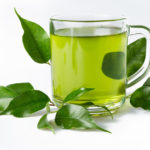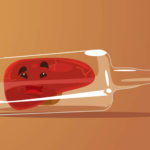Is Decaf Coffee Good for Your Liver?
Drinking coffee seems to be a healthful habit for those with chronic liver disease, but this understanding may not necessarily apply to decaf.
A staple worldwide, Americans are just one group of people who love their coffee. Since an estimated 83 percent of American adults consume coffee, any health benefits associated with this popular beverage is good news. Several relatively recent studies have deemed those hoping to ward off liver damage and liver cancer to be among the celebrators of coffee’s healthfulness. Not knowing if the liver benefits still apply, many who are sensitive to coffee’s caffeine content have switched over to the decaffeinated version. Unfortunately, the potential liver benefits of decaf are less known and have been the subject of much debate.
Liver Benefits of Coffee
Over the past few years, several well-constructed studies have concluded that coffee helps support liver health.
- Back in 2005, research published in the Journal of the National Cancer Institute found a relationship between drinking coffee and a reduced risk of liver cancer. This study of over 90,000 Japanese people found that people who drank coffee daily or nearly every day had half the liver cancer risk of those who never drank coffee. The researchers found that the protective effect occurred in people who drank one to two cups of coffee a day and increased at three to four cups. Because decaf coffee is rare in Japan, the effect of regular and decaffeinated coffee was not compared.
- As published in a February 2012 edition of the journal Hepatology, researchers investigated the effect of caffeinated coffee consumption on the liver in those with a fatty liver. Their findings were encouraging for the estimated quarter of Americans with non-alcoholic fatty liver disease; coffee consumption demonstrated an ability to prevent against liver fibrosis progression.
- As published in a June 2013 edition of the Journal of Gastroenterology and Hepatology, caffeine was singled out to determine what component of coffee may help prevent the progression of liver fibrosis. The researchers found a positive link between caffeine and liver damage inhibition.
About Decaf Coffee
Caffeine is the most commonly consumed psychoactive drug in the world. Some of its behavioral effects may resemble those produced by cocaine, amphetamines and other stimulant drugs. Predominantly due to problems arising from caffeine use, some people opt for decaf coffee instead. Reasons could include raising blood pressure, worsening menopausal symptoms, interfering with sleep, causing the jitters or intensifying anxiety – rationalizing why an estimated 12 percent of the coffee consumed worldwide is decaf.
Just because it is decaffeinated, decaf coffee may or may not be better for your health:
- Decaf coffee still has some caffeine. There are several different processing methods, but a small amount of caffeine remains in decaf coffee.
- Some decaf coffees are processed with methylene chloride, a solvent used to remove caffeine. Unfortunately, small amounts of this chemical remain in the beans. Methylene chloride is a proven carcinogen that is toxic to the lungs, nervous system, liver, mucous membranes and central nervous system.
- Due to the types of beans used, decaf coffee has been shown to be more acidic than either regular coffee or caffeine alone. Decaf coffee is typically derived from Robusta beans, which contain a much higher content of fats called diterpenes than other types of coffee beans. Diterpenes are substances that stimulate fatty acid production in the body, which could cause hyper-acidity in the digestive system.
From a chemist’s perspective, coffee is an amazingly complex liquid. In addition to caffeine, coffee contains over 1,000 different substances – some of which have been linked to healthful properties. Some experts claim that the same liver protective benefits can be assigned to decaf coffee as have been to regular coffee. Three coffee components that demonstrate this include:
- Caffeic acid – Found in coffee, but unrelated to caffeine, caffeic acid is a phenol with antioxidant and anti-carcinogenic properties.
- Chlorogenic acid – Also found in coffee regardless of caffeine content, chlorogenic acid is an antioxidant that can reduce the production of glucose by the liver.
- Ferulic acid – Another antioxidant in coffee, ferulic acid can decrease blood glucose, cholesterol and triglyceride levels in the blood.
Decaf for the Liver
Unlike the studies evaluating full-strength coffee’s effect on the liver’s health, there have not been many trials examining decaffeinated coffee in the same way.
The 2005 Japanese research confirming coffee’s ability to prevent liver cancer was only conducted on regular coffee, not decaf. Casting even more doubt on decaffeinated coffee, an American study published in a January 2010 edition of the journal Hepatology found that caffeine in coffee was essential in protecting against liver fibrosis progression. In this study:
- Patients undergoing liver biopsy completed a detailed caffeine questionnaire on three occasions over a six-month period.
- Caffeine intake was compared between patients with mild and advanced liver fibrosis.
- Daily caffeine consumption was associated with reduced liver fibrosis.
- Consumption of caffeine from sources other than coffee or of decaffeinated coffee was not associated with reduced liver fibrosis.
Although confirming regular coffee’s value to those with chronic liver disease, this 2010 American study is not sufficient for coming to a conclusion about decaf coffee.
In a Brigham and Women’s Hospital trial in Boston, data was analyzed from two large studies — the Nurses’ Health Study of women and the Health Professionals’ Follow-up Study involving men. Although neither study looked at liver-related health, this analysis of nearly 2 million people identified over 1,400 cases of colorectal cancer. Interestingly, the researchers did not find any association between cancer rates and consumption of caffeinated coffee or tea, but did find that people who regularly drank two or more cups per day of decaffeinated coffee had about half the incidence of rectal cancer as those who never drank decaf. The researchers surmised that the difference may be due to differences in lifestyle, suggesting that drinkers of decaffeinated coffee might be more health conscious overall.
Synthesizing all of the available information still does not give us enough information about decaf coffee’s potential benefit to liver health. As it stands now, it appears that the evidence linking liver protection to coffee requires the caffeinated variety. However, it you don’t drink coffee, or consume decaf for other reasons (make sure to avoid beans processed with methylene chloride), do not worry about missing out on coffee’s liver health benefits. Although drinking caffeinated coffee is one habit that might be beneficial to your well-being, there are plenty of other avenues for taking care of your liver’s health.
http://jnci.oxfordjournals.org/content/97/4/293.abstract, Influence of Coffee Drinking on Subsequent Risk of Hepatocellular Carcinoma: A Prospective Study in Japan, M Inoue, et al, Retrieved August 3, 2013, Journal of the National Cancer Institute, February 2005.
http://www.bidmc.org/YourHealth/HealthNotes/GIHeartburn/NewsAdvances/GoodNewsforCoffeeDrinkersItMayProtectyourLiver.aspx, Good News for Coffee Drinkers: It May Protect Your Liver, Heather Maloney, Retrieved August 2, 2013, Beth Israel Deaconess Medical Center, 2013.
http://www.foodmanufacturing.com/news/2013/04/consumer-trends-83-percent-americans-drink-coffee, Consumer Trends: 83 Percent of Americans Drink Coffee, Retrieved August 2, 2013, Advantage Business Media, 2013.
http://www.health.harvard.edu/newsletters/Harvard_Health_Letter/2012/January/what-is-it-about-coffee, What is it About Coffee?, Retrieved August 2, 2013, Harvard University, 2013.
http://www.nbcnews.com/id/6975257/ns/health-cancer/t/coffee-may-help-protect-against-liver-cancer/#.UfvW05LVDHQ, Coffee May Help Protect Against Liver Cancer, Retrieved August 2, 2013, The Associated Press, 2013.
http://www.ncbi.nlm.nih.gov/pubmed/20034049, Increased Caffeine Consumption is Associated with Reduced Hepatic Fibrosis, Modi AA, et al, Retrieved August 2, 2013, Hepatology, January 2010.
http://www.ncbi.nlm.nih.gov/pubmed/21987293, Association of coffee and caffeine consumption with fatty liver disease, nonalcoholic steatohepatitis, and degree of hepatic fibrosis, Molloy JW, et al, Retrieved August 3, 2013, Hepatology, February 2012.
http://www.ncbi.nlm.nih.gov/pubmed/23808892, Caffeine attenuates liver fibrosis via defective adhesion of hepatic stellate cells in cirrhotic model, Shim SG, et al, Retrieved August 3, 2013, Journal of Gastroenterology and Hepatology, June 2013.
http://www.psychologytoday.com/blog/your-brain-food/201105/why-decaf-coffee-is-just-healthy, Why decaf coffee is just as healthy, Gary L. Wenk, PhD, Retrieved August 2, 2013, Sussex Directories, Inc., 2013.
http://www.steadyhealth.com/articles/Is_Decaffeinated_Or_Decaf_Coffee_Healthy__a800.html, Is Decaffeinated or Decaf Coffee Healthy?, Dr. Shelley Narula, Retrieved August 2, 2013, SteadyHealth.com, 2013.
http://www.todayifoundout.com/index.php/2011/04/how-decaffeinated-coffee-is-made/, How Decaffeinated Coffee is Made, Julia, Retrieved August 3, 2013, Vacca Foeda Media, 2013.












